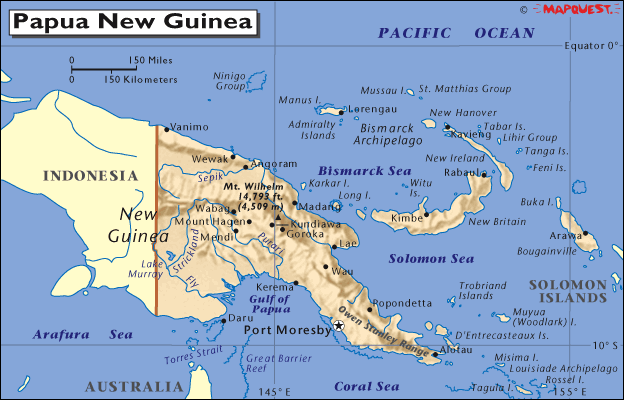PORT MORESBY – Papua New Guinea’s coffee is achieving growing recognition internationally – with one of its growers last year bagging third place in a global taste competition.
Yet, PNG is not widely known as a coffee-producing nation, mainly because it is responsible for only around 1 percent of the world’s coffee. This means it has little influence over global prices which have plummeted in the past three years – the result of a glut in major producing countries like Brazil and Vietnam.
However, many exporters and buyers see great potential for Papua New Guinean coffee, particularly if growers – around 90 percent of whom are smallholders – can capture niche markets. This, they say, will enable farmers to capture a higher price for their produce, and ultimately, increase consumer recognition of a PNG “brand”.
PNG has big potential for gourmet coffee
Aarlie Hull, Co-Founder of Highlands Arabicas, a company which ships gourmet coffees to roasters worldwide, firmly believes that PNG coffee has the potential to put itself on the map.
“You’ve heard of Jamaican Blue Mountain. Well, there’s no reason why PNG coffee couldn’t achieve this same recognition,” she says. “It’s got great taste, great aroma. The fact that it’s rare isn’t an impediment; it’s an opportunity. Done well, I’m convinced this could be the best coffee in the world.”
What determines price premiums for specialty labels, however, is quality, and PNG’s half million coffee farms, on which 2.5 million people depend for their livelihoods, will require significant support and investment to achieve it.
Many of their coffee trees are now more than 40 years old, and farmers are producing far below their potential yield. Extension services have also seen significant declines over the last decade, contributing to a loss of valuable agricultural knowledge in many parts of the country.
Agriculture project to help boost coffee production
“Coffee production in PNG is at a critical juncture,” says David Freyne, Project Manager of the Productive Partnerships Agriculture Project (PPAP) based in the Highlands town of Goroka. “The industry is facing some very significant challenges and it’s going to require real reinvigoration to get it fully back on its feet.”
This is why high hopes have been raised for the project, a large-scale agricultural program to the value of US $46 million, funded by the World Bank and the International Fund for Agriculture Development.
The project is working with key players in PNG’s coffee industry by forming partnerships with farmers in all the major coffee-producing provinces, to help replant and rejuvenate their coffee gardens to increase their income, and improve sustainability through quality standards and certification.
It is also working with the Coffee Industry Cooperation as they develop strategies and a vision for the PNG coffee brand.
Mark Munnull works as a project manager with Kosem Ltd, a nationally owned, family-run coffee business in the recently created province of Jiwaka. When farmers from neighboring areas bring coffee to the factory in Banz, he helps weigh the produce and evaluate the quality, which determines the price farmers receive.
“Farmers tend to think that weight determines prices, so they pick as many unripe cherries as they can – which we can’t sell,” says Mark. “So with PPAP we’re trying to change that thinking, and help them grow a good quality coffee that can bring them a premium price.”
Small farmers already feel benefits from the project
Many farmers benefiting from the first round of the project have already seen improvements in their coffee gardens, with more beans and larger cherries. Pastor Wilson is among those in Western Highlands province who have received training in coffee management, as well as planting materials.
“Before, the coffee wasn’t good. The trees were dry and the leaves had vanished. I harvested some good coffee this year, and added more kilos because the coffee came back to life again. This year we’re expecting a good harvest.”
It is hoped that these kinds of activities can be replicated across PPAP partnerships. To date, 13 coffee projects are starting or into the first year of implementation– expected to benefit 11,600 farmers and their families.
More are in the pipeline. Later this year, the project will also work in select communities to help improve by-roads so that farmers can have access to local markets, including in the rainy season when many rural roads become impassable.















